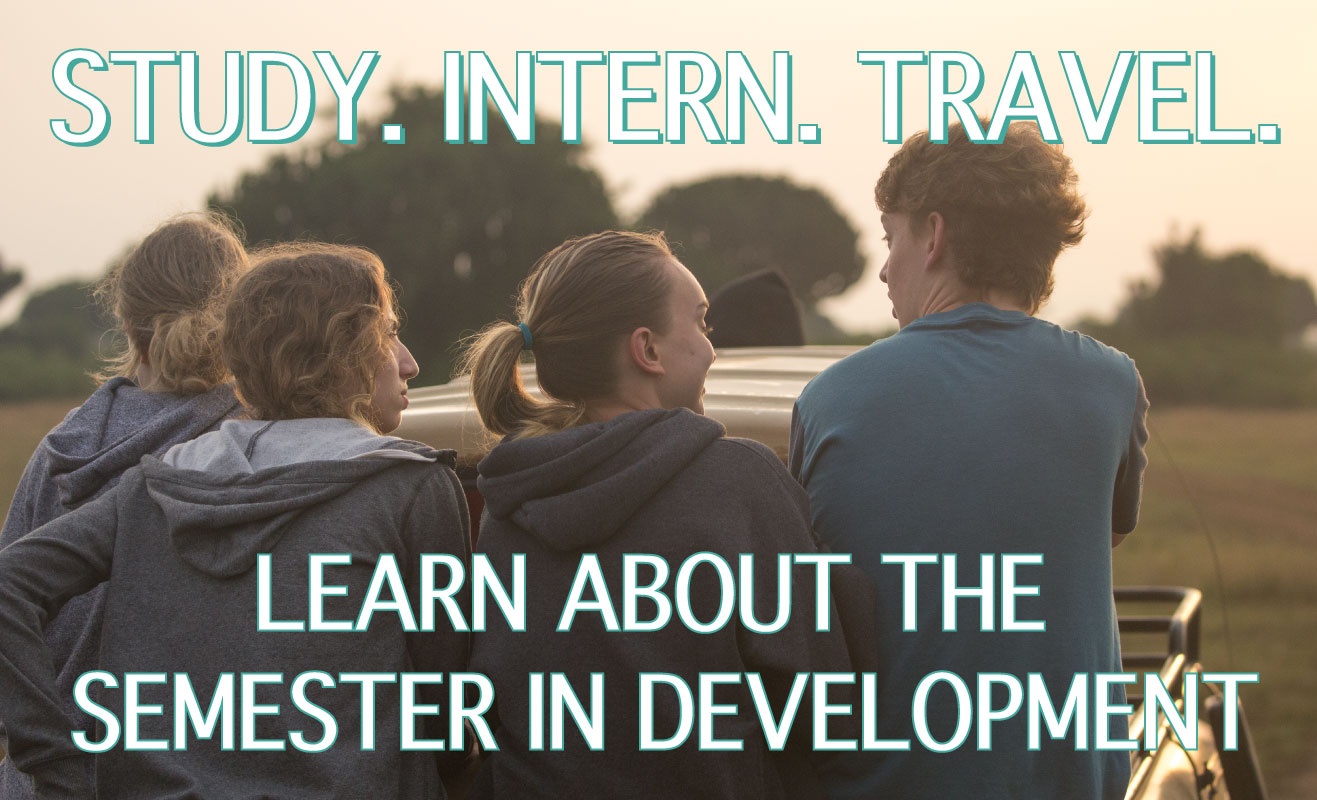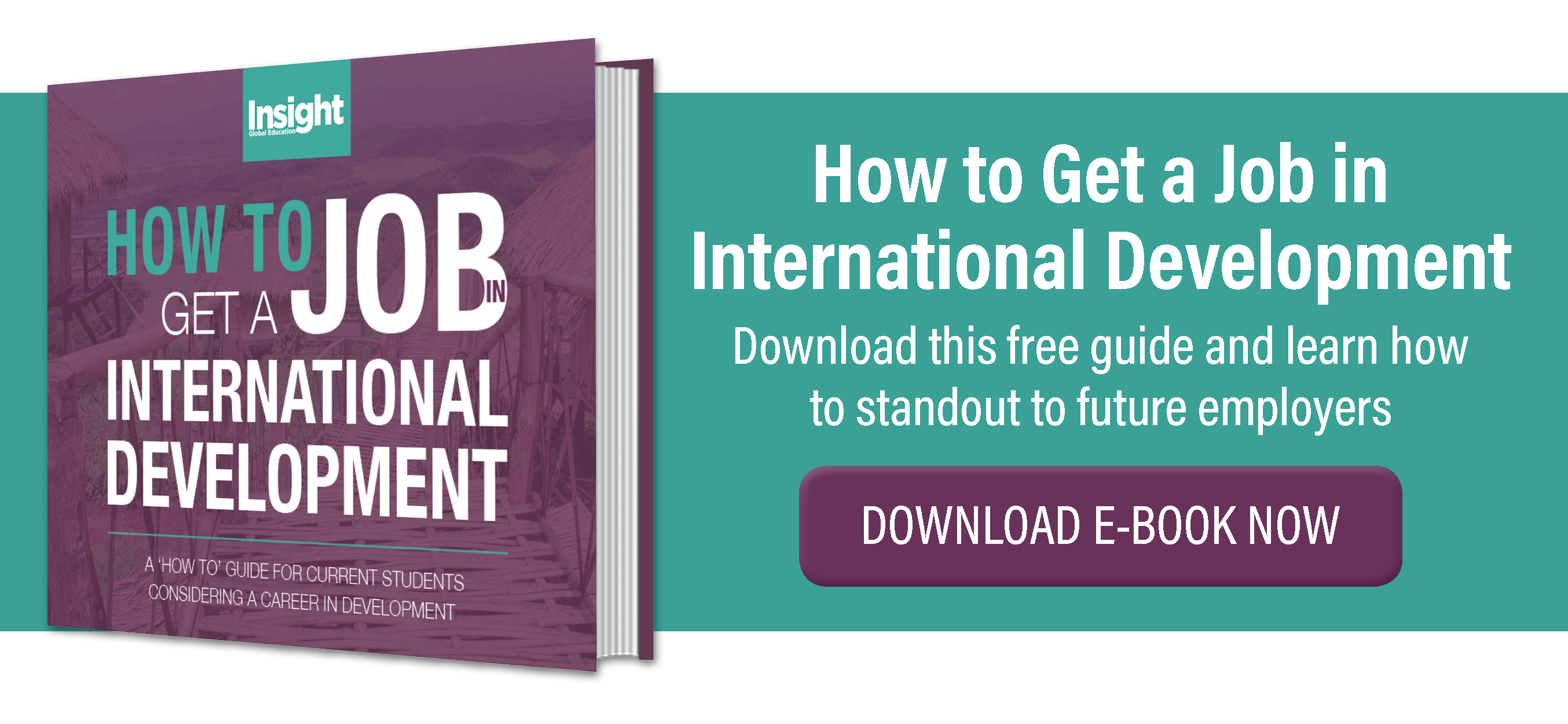Spring 2015 Semester in Development participant’s first field experience through her internship with Straight Talk Foundation in Uganda.
My Semester in Uganda was, to say the least, incredible! The Semester in Development was the first time I had ever travelled without someone from my family by my side, and going into it, I did not know what to expect.
What an experience it was to live, study and intern in Africa. I interned with Straight Talk Foundation, an organization which focuses on reproductive health education for youth throughout Uganda.
Their main way of distributing knowledge is through different print publications that are sent out to schools on a quarterly basis. I had expressed interest in this organization's newly adopted disability program, due to some of my past work experience. This is the story of my very first work trip with Straight Talk.


This trip happened sort of suddenly. The day started like any other – I dragged myself out of bed, got ready, hopped on a Matatu, grabbed my coffee, passed through security, greeted everyone a fine morning – but just before my bag touched my desk, my supervisor quickly announced, “I hope you packed enough in there!”
Here I was thinking that I'd be working my normal 8-5 day, but Straight Talk had other plans. The memo I had failed to receive (because I was on a Safari all weekend) was that I would be traveling to Iganga, a city about three hours east of Kampala, for the week. I was both excited and anxious to start this trip because it was going to be my first experience in the field, working one-on-one with Ugandan students.
I got sent home half way through my day to better prepare for the trip. My co-workers were supposed to pick me up by noon, but they didn’t show up until three. I was VERY thankful they didn’t, because I spent some time doing research on topics that I might have been required to answer questions about. I crossed my fingers that I had prepared enough, grabbed my things, and headed out into a completely cramped car.
In it were my two co-workers, their two children (who were both under one year old), their two nannies, our driver and myself, all in a car no bigger than your average PT Cruiser. On the bright side, there was a lot of trunk room where they fashioned a seat for one of the nannies to squish into.
Now that we were three hours late, we began our three hour drive out of the city. We didn’t reach the town until later that evening. Uganda’s traffic made sure to turn our sweet three-hour drive into a nice, rounded five hours. When the travelling was finally over, we began to prepare for the tasks that would be given to us in the morning.

Straight Talk had sent our group to Iganga to collect information from schools that help students with vision impairment, for their next issue of Straight Talk Braille. There is only one primary school and one secondary school that takes on visually impaired children and provides them with the proper education and care.
We were also there to speak with the school district, the police department and another organization called Reproductive Health Uganda, to see what they do to protect the children that are vulnerable to societies’ abuse and neglect. And of course, our main task was to answer any health questions that the children had for us, and to scope out what they wanted to learn about in future Straight Talk publications.
Our first stop was the primary school called Piascy. Unfortunately at this school, the younger children had difficulty understanding English, so only one of us could speak to the children in the local language. It was still good to see how Straight Talk interacted with the children. They start off the lessons with a prayer and sing some songs before getting into the educational side of things.
At this school there was a 14-year-old child who called himself Master Ever. He pulled me aside after the lesson to tell me more about his story. His father, after learning that his son was blind, told him that he was no son to him and abandoned him. To survive, Master Ever performed in the streets and collected money to support his family and put himself through school.
He continued to tell me more about his passion for music and his desire to pursue it. It was touching to see that he was still so motivated to pursue his passion, despite his disability and lack of support or resources.


My lack of involvement, due to the language barrier, allowed me to sit and fully observe the classes. As cheesy as this sounds, there were multiple times where I was on the verge of tears, not because I felt an overwhelming amount of guilt, but because I witnessed how happy and excited they were to be there. I don’t know about everyone else, but when class speakers came to my school, most students were stoked about missing class, or found it an ideal time to answer texts from their BFFLs.
What I’m trying to emphasize is that the amount of appreciation I saw in these kids’ faces for the education they were receiving was touching. This was a huge deal to me during the trip. This was exactly when I realised that the work that was being done during this trip and by the organization made a remarkable impact in these children's lives.
A simple quarterly publication around four pages long was helping educate, motivate and grow these individuals. Again, this is when I realised that no matter what I did on this trip, no matter how little I helped, I still made an impact to someone. This was the moment I knew I had made the right choice in coming to Uganda.
We then moved along to the nearby secondary school, an all-girls high school that works with the visually impaired. The idea behind this visit was the same as the previous school. My co-workers had to speak with several teachers (some of which were also visually impaired,) so I was thrown into facilitating a class.
After short introductions I had to figure out how to get these kids talking about their personal problems; challenges they face at home or in public. It was a great feeling to finally get a full understanding of the knowledge they lacked about basic health issues and the obstacles they have to deal with on a daily basis.


The next day we made our final visits. The first stop was to the police department to learn about the programs they offer to help children that face abuse – mainly focusing on how they help those with disabilities. They expressed that they help out whoever comes to their door; however not many seek help out of fear of repercussions from their families or neighbours.
With that knowledge, Straight Talk will continue to encourage children to come forward and receive help from these programs, assuring them that they will be kept safe from any dangers. Finally, we made a stop at Reproductive Health Uganda, a national NGO. We looked into the programs and services they provide for the children, which includes mobile clinics where they perform circumcisions, provide condoms, and additional help that children may need.
They also provide a safe spot for kids to hang out and learn from the onsite educators. This safe spot includes an area where youth could play pool, and a dresser with four huge drawers full of free condoms.
That was it – we took all the information we gathered and made our way home. All this data would help write the next issue of Straight Talk Braille. This trip allowed me to see and hear firsthand the issues that I had been reading about in letters from Straight Talk’s young readers for weeks. Thus concluded my first work trip out of the city! Success!
Semester in Development, Spring 2015




Leave A Comment